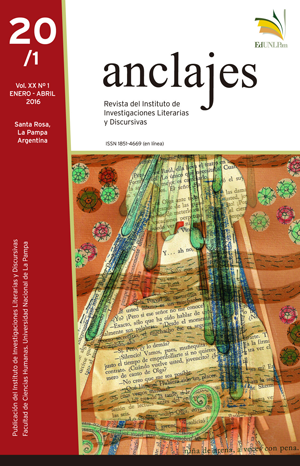Testimonial ethos and against-canon (Gabriel Celaya’s case)
Keywords:
Gabriel Celaya, ethos, auopoetics, canon, testimonyAbstract
The work of Gabriel Celaya (San Sebastián, 1911-1991) consolidates a poetic trend, known as “social poetry”, against the four decades of dictatorship of General Franco after the Spanish civil war, allowing us to reconstruct a space of distinctive positions from his autopoetics in prose and metapoems. For Celaya, the poem must be dialogical and perlocutionary: it does things and speaks. To speak means to talk with others, to exchange ideas and values, to share. To do things with words means to take active action, to be part of the social space, to interfere against power restrictions, to replicate the impositions of the regime, even from such a small place that means nothing in real terms. This possibilism is better than remaining in silence or in a paralyzed muteness. Poetry and essay both help to rationalize the functions of art, the figurations of the poet and the nature of the poetic act, all vectors that converge in the modulation of a testimonial ethos for the lyrical genre, a discursive type basically hybrid and rarely applied to poetry. Our study will explore textual and contextual indexes that support Celaya’s authorial project and that enact a contract to approach texts in a specific way, thereby formulating a contra-canon of resistance to power, during the period that some critics maliciously called "the waste land" of the Spanish post-civil war.
Downloads
Downloads
Published
Issue
Section
License

This work is licensed under a Creative Commons Attribution-NonCommercial-ShareAlike 4.0 International License.
The authors must adhere to the Creative Commons license called "Attribution - Non-Commercial - Share Alike CC BY-NC-SA", through which it is allowed to copy, reproduce, distribute, publicly communicate the work and generate derivative works, provided and when the original author is cited and acknowledged. However, it is not allowed to use the work or its possible derivative works for commercial purposes. The authors may establish additional agreements for the non-exclusive distribution of the version of the work published in the journal (for example, place it in an institutional repository or publish it in a book), with the acknowledgment of having been first published in this journal.
The publication of contents in this journal does not imply any royalty or charge for the contributors.








.png)

2.png)















_(2).png)






.jpg)
_(1)1.jpg)



.jpg)



